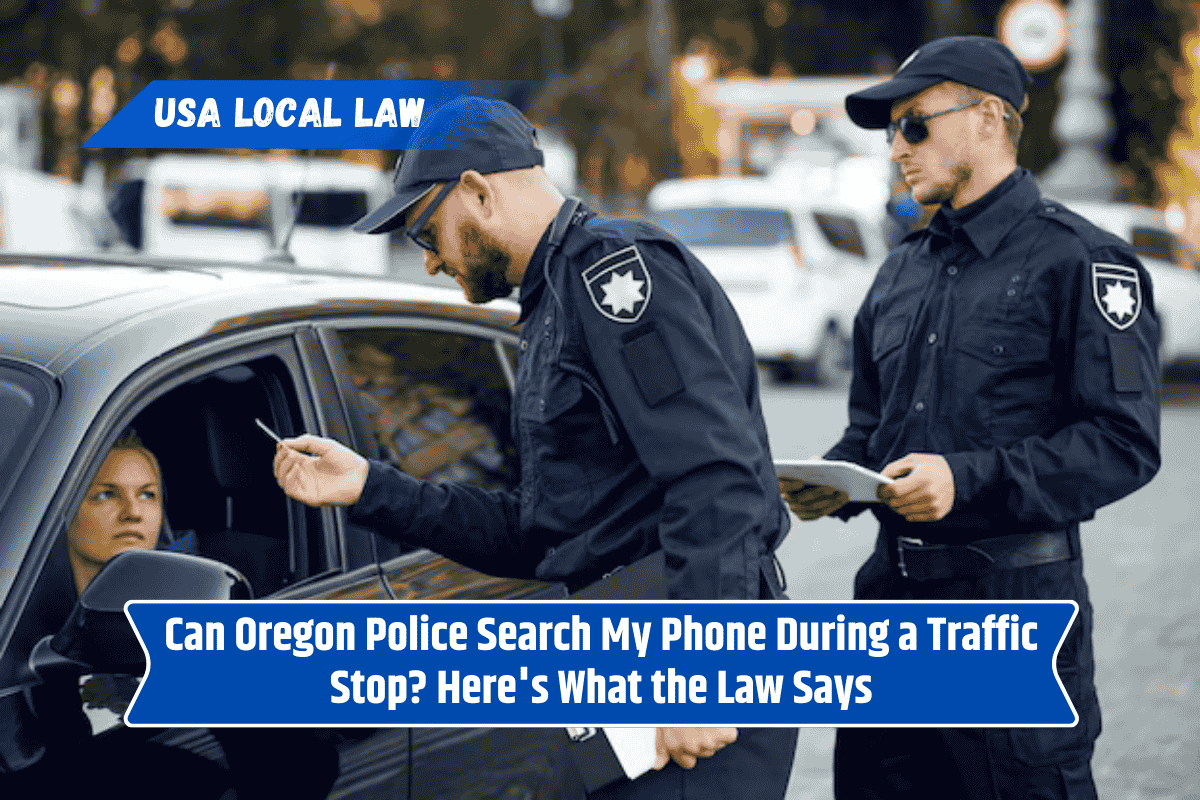Getting pulled over by the police can be a stressful experience, especially if you’re unsure about your rights. One common question drivers ask is: “Can the police search my phone during a traffic stop in Oregon?”
With smartphones holding so much personal information, it’s important to know what the law allows—and what it doesn’t. Here’s a simple explanation of your legal rights in Oregon when it comes to phone searches during traffic stops.
Do Police in Oregon Have the Right to Search Your Phone?
No, Oregon police cannot search your phone during a traffic stop without a warrant, your permission, or a valid legal reason. Your phone is protected under the Fourth Amendment of the U.S. Constitution, which guards against unreasonable searches and seizures.
In most cases, this means officers need to do one of the following before they can access your phone:
Get your consent
Obtain a search warrant from a judge
Show there’s an emergency (exigent circumstances)
Unless one of these applies, your phone stays private—even during a traffic stop.
What Counts as Consent?
If you voluntarily hand over your phone or say “yes” when asked, that counts as legal consent. Many people do this without thinking, especially during stressful situations like traffic stops. But remember, you have the right to say no.
If you’re unsure, you can politely say:
“I do not consent to a search of my phone.”
“Am I required to give you access to my phone?”
This tells the officer clearly that you’re choosing to protect your rights.
When Can Police Search Without a Warrant or Consent?
There are a few rare situations where Oregon police might be able to search your phone without a warrant or permission:
- Exigent circumstances: If police believe that waiting to get a warrant would lead to loss of important evidence or danger to life.
- Search incident to arrest: If you’re being arrested, officers may search some items on your person. However, after a major Supreme Court ruling (Riley v. California), this does not automatically include your phone’s data—they still need a warrant.
- Plain view or other exceptions: If something illegal is in plain sight on your phone screen (like open illegal content during the stop), it could be used as evidence.
But these exceptions are very limited. In general, if you’re not being arrested and there’s no emergency, the officer must have a warrant.
What If Police Ask for My Passcode or Face ID?
Oregon law follows federal standards. Here’s how it breaks down:
Passcode or PIN: Courts have ruled that you usually have the right to refuse giving your phone’s passcode because it is protected under your right against self-incrimination.
Face ID or Fingerprint: Some courts have allowed police to force a fingerprint or facial unlock. However, this is still legally debated and not guaranteed.
To protect your privacy, it’s safer to disable Face ID or fingerprint unlock before interacting with police.
Can Police Take Your Phone Without Searching It?
Yes, police can temporarily seize your phone during a stop if they believe it holds evidence of a crime. But they still can’t go through its contents without a warrant or your consent.
If they take your phone:
Ask if you’re free to leave.
Ask if your phone is being held as evidence.
Request a receipt or documentation of the seizure.
What You Should Do During a Traffic Stop in Oregon
To stay calm and protect your rights:
Be polite and cooperative, but don’t offer extra information.
Clearly say if you don’t consent to a phone search.
Keep your phone locked and use a passcode.
Record the interaction if you feel your rights are being violated (Oregon law allows this, as long as it doesn’t interfere with police work).
In Oregon, police cannot search your phone during a traffic stop unless you give permission, they get a warrant, or there’s an emergency. You have strong privacy protections under the law.
Don’t feel pressured to unlock your phone or share personal data without understanding your rights. Staying calm, respectful, and informed is the best way to handle any interaction with law enforcement.
